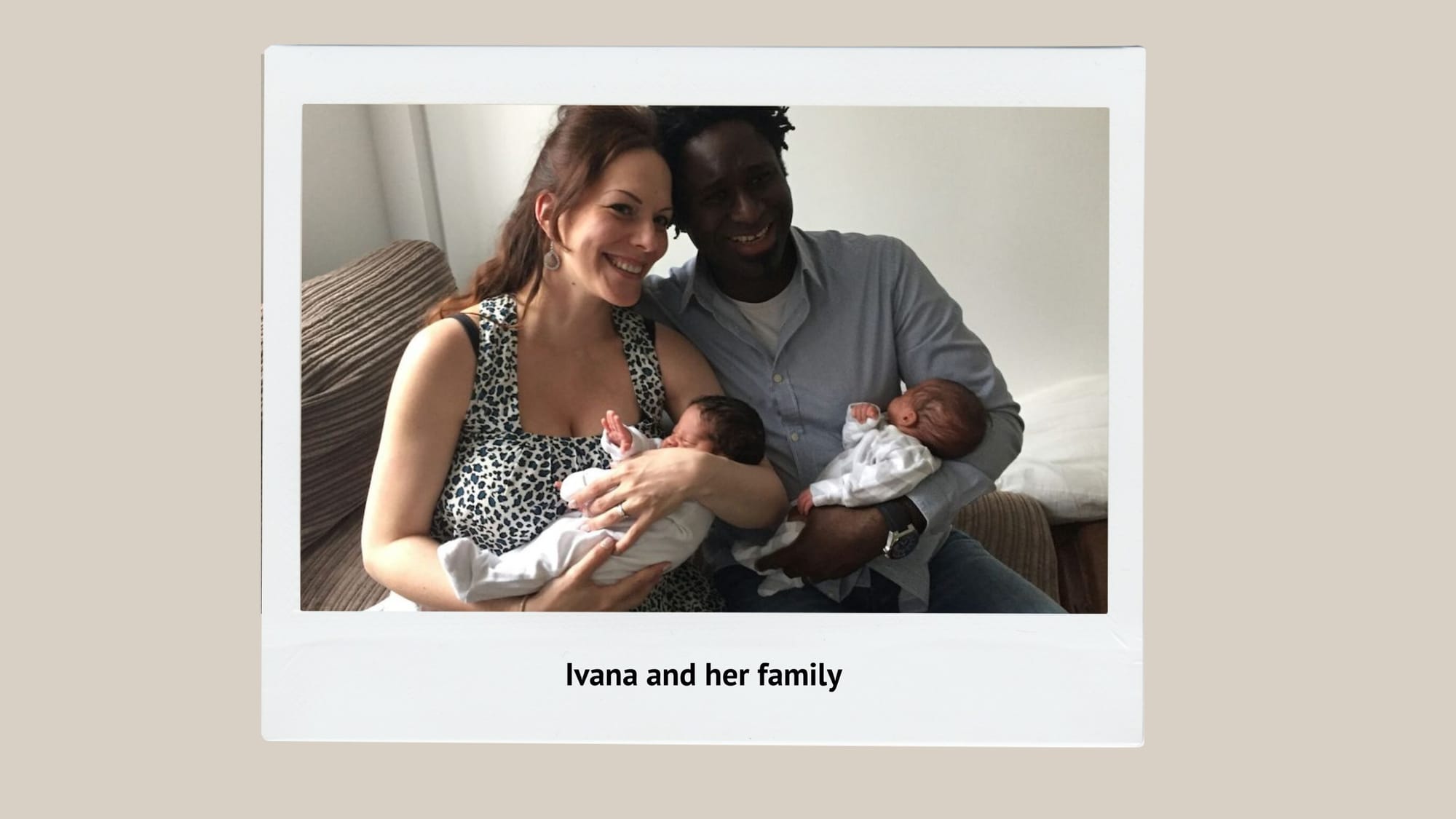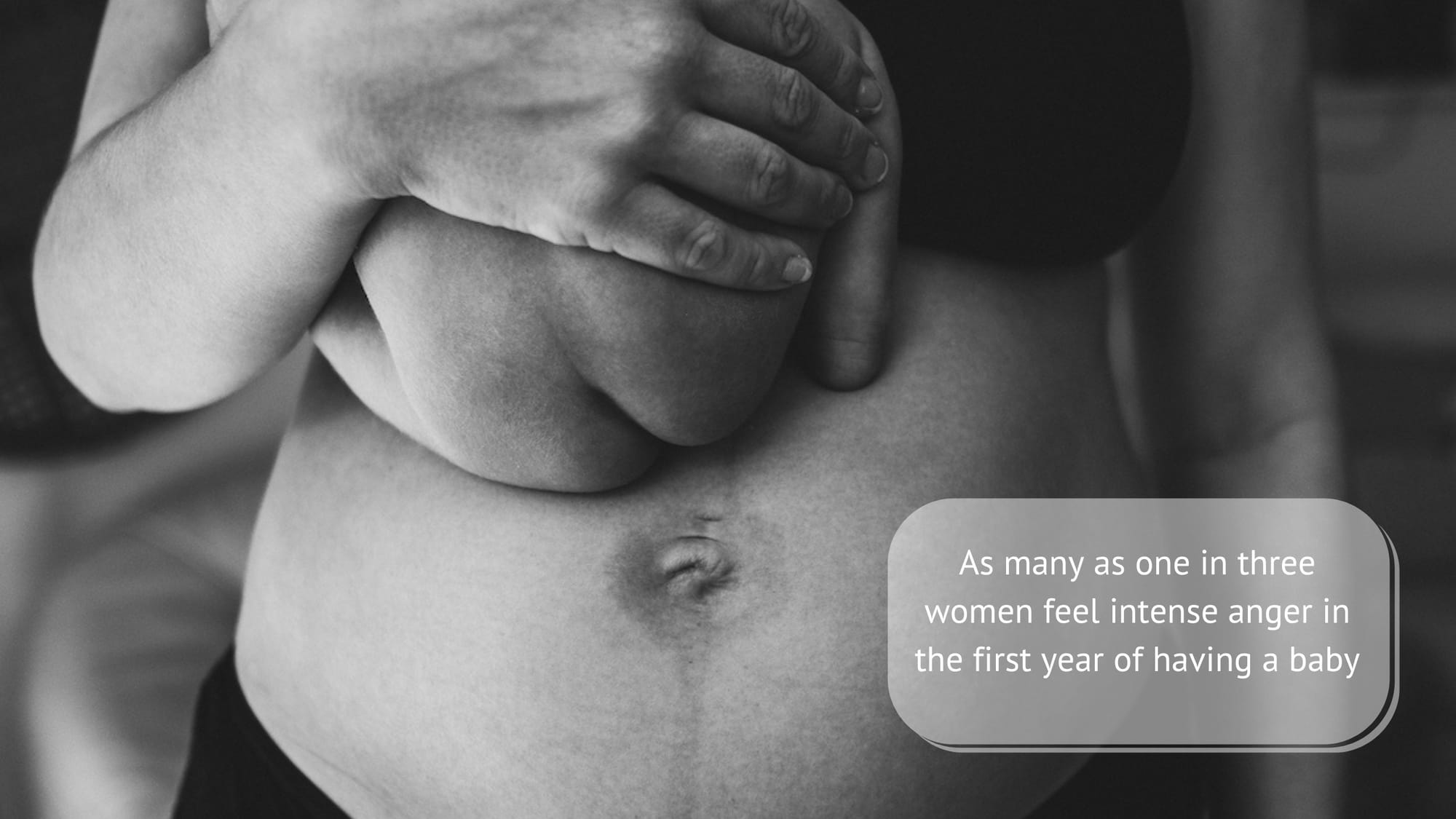
It’s time we talk about this less-acknowledged, but highly prevalent, postnatal experience
The world of advertising and social media would have us believe that the postpartum phase is a period of cosy contentment, packed full of mum-and-baby snuggles. But that was not what Dr Ivana Poku experienced when she gave birth to twins in 2016.
Unbeknown to Ivana, she was suffering from postpartum rage, a mood disruption causing intense anger, aggression, and agitation in the weeks and months after giving birth. New mothers find themselves acting out of character, perhaps struggling to control their temper, screaming or swearing, experiencing violent thoughts or urges, and maybe even expressing their anger physically, by punching or throwing things.
After these flashpoints, it’s common for women with postpartum rage to feel a flood of unhelpful emotions. “It was like a vicious circle. Something made me angry, then I was angry with myself for being angry,” Ivana explains.
“I felt angry that they were born in the first place, as my life changed,” she recalls. “And then I was angry with myself for feeling that way because I felt I should be happy and enjoy it. But I didn’t. I even regretted the decision to have them at one point in the early days, because I saw them as aliens that ruined our lives.”
Although most people have at least heard of postpartum depression, postnatal rage is not often talked about, although evidence suggests it is just as prevalent.
Dr Caroline Boyd, clinical psychologist and author of Mindful New Mum: A Mind-Body Approach to the Highs and Lows of Motherhood, says: “Anger is a normal, human emotion – we all feel it. Anger is neither good nor bad – it’s an emotion alerting us to harm, insult, violation and injustice. The ‘fight’ part of fight, flight, or freeze is triggered, flooding our body with stress hormones, and priming us for action.
“Anger builds on anger, so we flip our lid after a series of provocations – where the ninth or 10th irritation becomes the last straw and we erupt. For mums, the trigger can be as simple as losing your keys when trying to leave the house with a new baby, or a cumulative response to overwhelm amid the endless demands of motherhood.
In a study published in the journal Qualitative Health Research, it was found that as many as one in three women feel intense anger in the first year of having a baby – making anger even more prevalent than postnatal depression.
“Of the one in three Canada-based women who reported experiencing intense anger, half felt depressed, whereas the other 50% did not,” Dr Boyd explains. “This means depression does not always occur alongside anger. However, we know that if a woman is both angry and depressed, her low mood can be experienced as more intense and last longer.”
Ivana recalls: “I was just listening to screaming twins, and seeing that suddenly all I do is feed and change nappies. Other people without children had their life, and I was fuming that I didn’t have that any more.

“I felt like I should put a happy face on, but inside I was boiling. It didn’t help having to pretend I was OK when I wasn’t.”
In a desperate bid to control her emotions, Ivana, who was also experiencing postnatal depression, started to self-medicate with antidepressants she had at home, left over from a previous prescription.
“I had got to the point where I felt like everyone would have been better off without me. I knew they would help me to function so I just started taking them again,” Ivana says. “Then I reached rock bottom, and my friend found me crying, so I couldn’t hide anymore. Speaking to her was the first step, and gave me the courage to speak to more people. It was so freeing, letting it all out.”
It was then that Ivana discovered she was not alone. “Other mums around me admitted they felt the same – we had spent this year together, and had no idea that we all struggled in silence, together.”
According to Dr Boyd, this is not uncommon. “What I notice in my work supporting parents is that while there’s more awareness around maternal anger, it remains the hidden emotion in motherhood – women are still being socialised to squash it,” she says. “According to the myth of ‘supermum’, which has us believe we must be calm, coping and in control at all times, ‘negative’ emotions such as anger are simply forbidden. So when we feel angry, we often try to suppress it – this keeps it simmering under the surface. Then, when our child tests us, it all comes spilling out in a white-hot rage.
“We know excessive anger has significant costs, negatively impacting our mental health as well as our physical health, as well as our relationships with others.”
Ivana began to turn a corner after a year, when she finally managed to get professional help, although she still experienced episodes of rage for some time afterwards, including a terrifying incident when the two-year-old twins unbuckled themselves and climbed into the car boot while Ivana was driving on the motorway.

“I was scared we could crash. I was screaming,” she recalls. “I called my husband, he calmed me down and told me to go back home and wait. When I got back, he was already there. I just went to our bedroom and closed the door.”
Ivana’s third child was born in 2021 and, although she felt familiar feelings bubbling up, this time she was able to share these openly, and they quickly subsided. With her experience in mind, she swapped careers to help new mums with their postnatal mental health via her website mumsjourney.com and book, Motherhood: The Unspoken.
“I found my purpose in life again,” Ivana says. “Looking back, I’m glad I went through it because it showed me how much support mums need, and how little support they get. I’m on a mission to show the world what it really feels like to be a new mum. It’s portrayed on social media as an amazing time in a woman’s life, but that is not the case. Feeling low is a natural thing, so I’m trying to normalise this, and make people understand it’s not all a bed of roses.”
All this is to say that, if you or a loved one experiences feelings like those described here, you’re not alone. By bringing it into the spotlight, and with the right support, action can be taken to address this commonly hidden, but perfectly normal emotion.

